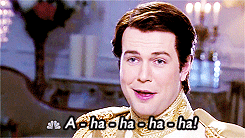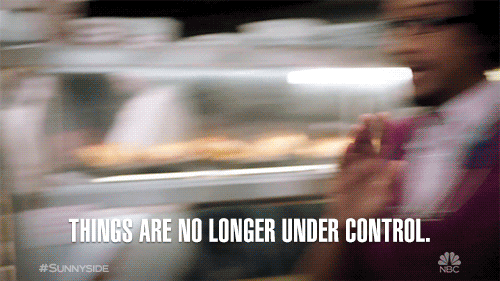- The Ladder
- Posts
- Virtuous Circles - Strategic Brilliance or MBA Delusion?
Virtuous Circles - Strategic Brilliance or MBA Delusion?
🎡 How to Create a Perpetual Growth Machine in Your Business

👋 Hello and welcome to all our new subscribers this week. Love having you all on onboard 🚂!
This week I’ve been thinking alot about circles and strategy, and how powerful, but deluded they can be.
If you missed last week’s edition on powerful yet often overlooked biases, you can catch-up here ⏪
This week:
I hope you enjoy.
Is this the real life? Is this just fantasy?


If you were sent The Ladder, click below to subscribe.
⏱️ ~ 8 minutes 27 seconds read
We’re standing on the platform of a Paris Metro station, and from what I can see, I’m pretty sure Virginia, my future wife, is about to start crying.
Armed with nothing but a handful of phrases from her distant memory of high school French and a belly full of butterflies, Virginia, the braver of us two, takes it upon herself to ask a Metro police officer for some help with directions.
It didn’t go well.
The Parisian officer’s raised eyebrows and heavy sighs barely hide his obvious disdain for tourists who butcher his “un beau language”.
This crushed Virginia. She never spoke a word of it again.

Parisian Metro Police dress well.
For the remaining week in Paris, it was up to me to blabber and butcher my way through ordering “un café fort avec du lait” and the like - with each attempt met by less-than-forgiving responses, my confidence didn't just wobble—it crashed. Until we became quite selective about what we would do to avoid having to speak french altogether.
A week later (and a lovely train ride) we were in Italy, where every "Buongiorno" we uttered, no matter how mangled, was met with warm smiles and patient ears.
Each encouraging nod was like a steadying hand for my own linguistic tightrope walk. The Italians didn’t just listen; they applauded the effort, corrected gently, and offered words of their own for us to mimic.
It was here, under the forgiving Italian sun, that I found my voice, growing bolder and more fluent with each passing day. I loved throwing around some “Molto bene” and even started with the hand waving/ pinched fingers expressions we’ve all seen on the football field.

The usual reception to my Italian
And I’m pleased to report the same for Virginia, although her “grazie” I have to say, still sounds a lot more like an Aussie explaining the surface of a football field.
What we experienced in Italy is the living essence of a positive self-reinforcing feedback loop aka virtuous cycle.
The positive feedback and experience with native Italians not only propelled my desire to communicate more, but transformed my efforts into further tangible progress.
It’s a cycle that's as potent and real in bartering in the cobblestoned streets of Rome, as it is in the design of products, campaigns and business models.
And that is what we’re breaking open for you today dear readers; The Virtuous Circle - what it is, how to create one inside your business and how to avoid it going bad and spinning in to a vicious cycle and downward spiral.
SPIN THAT WHEEL 🎡
A virtuous cycle is a mental model and strategic framework used in business, product, marketing and experiences to create positive outcomes which in turn create the resources/ materials needed to create more positive outcomes.
The idea is to create a self-perpetuating machine.
Think of it like a snowball rolling down a hill, picking up more snow and momentum as it goes. Until it’s huge and swallowing up entire families of skiers in its path [evil cackle].
In business, it's when good begets good in a loop so harmonious and alluring every CEO wants one at the centre of their strategy.

Let's break it down with some familiar faces.
Consider Amazon—imagine every book you ever wanted, delivered faster than it took to plan your weekend.
How do they pull this off? They start by trimming the fat on prices, making it the go-to for deals. Lower prices lure in more customers, which leads to more sales, and in turn, attracts a caravan of sellers. This growing selection creates a better customer experience, which builds a huge database of reviews, which just keeps the customers coming.
It’s a never-ending cycle of growth that ends with Jeff Bezos on Mars or something.
Then there's Uber, who’ve literally become a verb for ‘travel by someone else’s car’. Lower fares have us hopping into cars with strangers and successfully getting from A to B. This convenience multiplies riders, which attracts more drivers because hey, where there's demand, there's dollars.
More drivers mean even lower wait times and lower fares, and the cycle spins on, until you check your review history and find out you have “terrible taste in music”.
But it’s not just a game for mighty tech platforms. My very own Movember (yes I have a day job), has its own virtuous circle at the heart of its strategy.
Every lip sweater sprouted in November starts conversations about men’s health, and also raises money that goes to fund breakthroughs in health initiatives and impact.
These impact stories and evidence of progress, generate media, solidify partnerships and create more awareness. Which in-turn makes it easier for Movember to attract more fundraisers the following year.
And 20 years later, 6 million Mo’s and over $1.5B raised for men’s health - the organisation is stronger and more relevant than ever.
These examples aren't just success stories; they're blueprints for how a well-crafted virtuous cycle can start with a simple idea and spin off into a story of break-through success.
But, before you dash off to draft your own virtuous cycle, remember, the key ingredient is to start with something good—really good. Because in this loop, what goes around comes around, but with a little more oomph each time.
PERPETUAL MOTION MACHINES AREN’T REAL… ARE THEY? 🤔
Let’s be real, your virtuous circle strategy is only as good as the reality of what you actually do in each step.
If you’re not producing, for example extraordinary customer outcomes, you can’t expect that those outcomes will produce a steady flow of customer referrals and new business.
There’s two fundamental aspects to success here: research and measurement.
If your strategy and virtuous circle relies on happy customers, users, partners, drivers etc. at any stage, you must spend time up front (and then ongoing) talking with them.
Conducting qualitative and quantitative studies to understand what success really looks like for them, make those outcomes the focus of your value proposition and ultimately what you deliver to them.
If you have a step in your circle that includes something like ‘happy customers’ - you better be 100% certain of exactly what that means. Don’t assume - that’s willfully deluding yourself. Not cool.
Similarly, at each step in a single turn of the cycle, you’ve got to have really clear metrics in place to know what good looks like for that single step.
That could be Net Promoter Score, it could be review scores, it could be breadth of range, it could be prices, the list goes on.
The main thing is to know exactly what good looks like for each of these steps - and track the hell out of it.
In the case of Uber above it’s rider reviews, ride demand, driver supply and availability, ride volume etc.
Knowing exactly what good looks like for each step, measuring it and watching it like a hawk is how you keep the wheel spinning and business growing.
If you take your eye off any of these steps, what was once an insanely powerful force for growth in your business can quickly become a downward spiral of contraction, bad experiences and detractors.

WHEELS EVERYWHERE 👀
Virtuous cycles extend far beyond the realms of business models and marketing, weaving into strategies across business operations.
In talent acquisition and employee value propositions, for example, a well-designed employee referral program can create a self-sustaining cycle: satisfied employees who are working with other high calibre and skilled team members are more likely to refer high-calibre and qualified candidates, which in turn enhances team performance and job satisfaction, encouraging even more high-quality referrals.
This not only reduces hiring costs but also improves company culture and employee retention rates.
Show me a leader who doesn’t want some of that good stuff, and I’ll show you a soon-to-be unemployed leader.
In product development, implementing public customer feedback loops is another illustration of a virtuous cycle at work.
By actively integrating customer suggestions and reactions into product design, companies can enhance user satisfaction, leading to increased usage, referrals and more feedback. This cycle of continuous improvement keeps the product line fresh and relevant, fostering loyalty and driving growth.
Brand reputation, too, benefits from a virtuous cycle approach.
Consistently delivering on brand promises builds trust and loyalty among customers, leading to positive word-of-mouth and online reviews. This reputation for reliability attracts new customers while retaining existing ones, creating a feedback loop that sustains and enhances the brand's standing in the market.
The bigger you are the easier it is to grow - but it requires obsessive attention to the details of research and measurement ongoing.
BRINGING THE BIG-WHEEL INTO TOWN 🎡🎉
Introducing the concept of a virtuous circle into the strategic thinking of your organization can be a real break-through. But let’s not pretend it’s easy, or a particularly new idea for the C-Suite to get their heads around.
Here's a list of actionable steps, meetings, and workshops that you could initiate.
These actions are designed to demonstrate the concept's value, kickstart the identification of steps involved, and create a virtuous circle strategy tailored to your business and brand.
Introduction Workshop: The Virtuous Circle Explained
Objective: Educate team members on the concept of virtuous circles using simplified examples like Amazon, Uber, and Movember.
Activities: Break down each component of these companies’ strategies to illustrate how individual parts contribute to a larger, self-sustaining success loop.
Brainstorming Session: Identifying Our Potential Circles
Objective: Collaboratively identify areas within the business and or product where a virtuous circle could be implemented.
Activities: Use techniques like mind mapping to explore different aspects of operations, such as customer service, product development, and internal processes.
Research Design Meeting: Understanding Our Customers
Objective: Plan qualitative and quantitative research to understand customer, employee, or partner needs and what success looks like to them.
Activities: Develop surveys, interview guides, and focus group discussions to gather insights that will inform the design of the virtuous circle.
Metrics and Measurement Workshop: Defining Success
Objective: Establish clear metrics for each step of the proposed virtuous circle strategy.
Activities: Discuss and decide on KPIs such as Net Promoter Score (NPS), customer review scores, employee referral rates, etc., that align with each step's goals.
Pilot Program Planning Meeting
Objective: Plan a small-scale implementation of the virtuous circle strategy to test its effectiveness.
Activities: Select a segment of the business or a single department to trial the strategy, defining the scope, timeline, and responsibilities.
Feedback and Iteration Workshop
Objective: Review the results of the pilot program, gather feedback, and identify areas for improvement.
Activities: Analyze data collected during the pilot, discuss feedback from participants and stakeholders, and plan iterations to the strategy before wider rollout.
Leadership Briefing: Building the Case for Company-Wide Adoption
Objective: Prepare a presentation for senior leadership to demonstrate the strategy's potential impact on the company.
Activities: Compile evidence from the pilot, relevant metrics improvements, stakeholder testimonials, and a proposal for scaling the strategy across the organization.
Continuous Learning Forum
Objective: Establish an ongoing forum for sharing best practices, challenges, and updates on the virtuous circle strategy and steps within.
Activities: Schedule regular meetings for team members to share experiences, new research, and innovative ideas to enhance and expand the virtuous circle strategy within the company.
By carefully planning and executing some (or even all) of these, you’ll not only introduce the concept of virtuous circles to the wider team but also demonstrate its value, earning a place at the business strategy table (FYI it’s a bigger one than the marketing table).
Ultimately, that's the role of marketing and growth in the organisation, to identify strategic opportunities for growth and execute against them.
Does your organization currently leverage a virtuous circle in its strategy? If so, how realistic is it?
Can you identify any untapped opportunities within your team or business that could benefit from a virtuous circle approach?
Have you ever seen any instances where a virtuous circle has shifted into a vicious cycle? What do you believe were the contributing factors?
Hit reply, I’d love to hear your thoughts.
If you enjoyed this edition, please forward it to a friend who’s looking to level-up their marketing and strategy game - They’ll love you for it (and I will too) ⏭️ 💌
🔗 The Best from LinkBait This Week
It’s never too late to take up that sport, hobby or interest. Sorry here’s the science to prove you’re all out of excuses.
Our shared ‘Truth’ when it comes to being a marketer within a big firm.
If you spend even a dollar on digital ads, here’s an independent report you must see before you spend another.
The horrible truth about TikTok, and why it’s not just your poor tired eyes that are the victim here.
🗞️ You Shouldn’t Miss This, Now You Haven’t
Ray-Ban's Meta sunglasses are about to become a personal tour guide, providing interesting facts and details about landmarks as you gaze upon them 😎
Liquid Death has raised more funds to a valuation of $1.4 billion. Here comes more product lines and brilliant ads.
TikTok creators tell Congress “To Hell With The Fabric Of Society - We Want To Be Famous”
Have they tried turning it off and on again? Google’s fancy new HQ has patchy WiFi and the kids aren’t happy.
Print magazines are back (well they never really left) and it’s not old dudes in thick-knit cardigans running the show.
🧰 Level Up Your Game With These Tools
OhMyBot: Level up from LinkInBio tools to a personal chatbot in your bio 🤖
Thumbalytics: Test your YouTube thumbnails & titles before you publish 📺️
WireframeExamples: Stop staring at a blank screen and start with best practice UI features and wireframes 🛠️
🙋 Got a question? I might just have some answers.
Each week I'm here to answer any question you might have in the space of marketing, strategy, leadership, digital and everything in between.
Just hit 'reply' and let me know what's on your mind, and I'll share my answer with the community the very next week, including a special shout out (if you're into that, otherwise we can keep it anon) 🥸




Reply